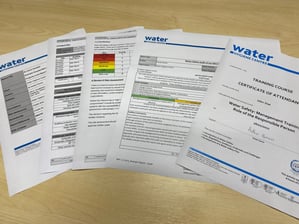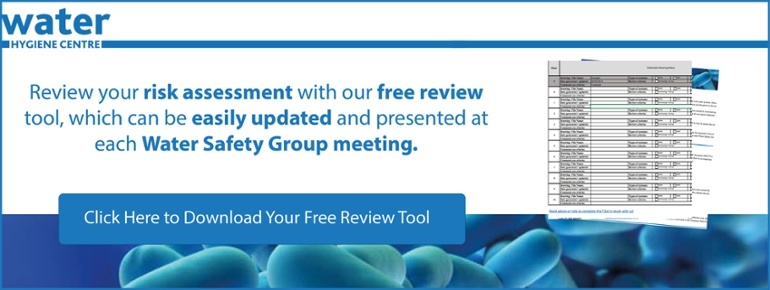
In the realm of health and safety, proper management of water systems is crucial to prevent the growth and spread of Legionella bacteria. The Health and Safety Executive (HSE) has established two key guidelines for managing these risks: the Approved Code of Practice (ACoP) L8 and the accompanying technical guidance document HSG274.
In this blog, we will delve into the essentials of these guidelines, providing you with a solid foundation of knowledge.
What is the ACoP L8?
The ACoP L8 (Legionnaires' disease: The control of Legionella bacteria in water systems) is a legal document that outlines the responsibilities of duty holders in managing and preventing the risk of Legionella bacteria proliferation. It covers various aspects, including Legionella risk assessments, control measures, and Legionella record-keeping.
Compliance with the ACoP L8 is a legal requirement and failure to adhere to its guidelines can lead to legal consequences.
Exploring HSG274
HSG274 is a series of technical guidance documents that support the ACoP L8. It provides comprehensive information on specific water systems and their associated risks, control measures, and monitoring requirements. The HSG274 is divided into three parts: Part 1 covers cooling towers and evaporative condensers, Part 2 focuses on hot and cold water systems, and Part 3 addresses other risk systems, such as spa pools (additional guidance on Spa pools is available in HSG 282 "The control of legionella and other infectious agents in spa-pool systems") and decorative water features.
Key Requirements and Recommendations
Legionella Risk Assessment: Duty holders must conduct a thorough risk assessment to identify potential sources of Legionella bacteria growth and evaluate the associated risks.
- Control Measures: Implementing appropriate control measures is crucial to minimise the risk of Legionella proliferation. These measures may include temperature monitoring, regular cleaning and disinfection, and appropriate system design and maintenance.
 Monitoring and Record-Keeping: Regular monitoring and maintenance activities should be documented to demonstrate compliance and track any changes or incidents.
Monitoring and Record-Keeping: Regular monitoring and maintenance activities should be documented to demonstrate compliance and track any changes or incidents.- Competence and Legionella Training: Employers should ensure that individuals responsible for managing water systems are competent and possess the necessary knowledge and skills to carry out their duties effectively.
- Communication and Collaboration: Effective communication and collaboration among all stakeholders, including employees, contractors, and management, are essential for the successful implementation of control measures.
Additional Considerations
- Emergency Procedures: Develop and communicate emergency procedures in case of any incidents or outbreaks related to Legionella.
- Review and Revision: Regularly review and update Legionella risk assessments and control measures to adapt to changes in the water systems or any new guidance provided by the HSE or other guidance such as British Standards.
- Engage Professionals: In complex situations or when dealing with large-scale water systems, seeking professional independent advice, such as an Authorising Engineer (Water), and services can ensure compliance with the guidelines and enhance safety measures.
Conclusion
Compliance with HSE ACoP L8 and HSG274 (and other relevant legislation) is crucial for maintaining a safe and healthy environment. Understanding the basics of these guidelines empowers duty holders to effectively manage and control the risks associated with Legionella bacteria. By following the requirements and recommendations outlined in these documents, we can ensure the well-being of employees, visitors, and the general public while preventing the spread of Legionnaires' disease.
Feel free to reach out if you have any questions about the issues mentioned above or if you would like to consult with one of our experts on water hygiene.
Editors Note: The information provided in this blog is correct at the date of original publication - August 2023
© Water Hygiene Centre 2023








